Capital Update – For the Week Ending October 27, 2023
In this week’s National Pork Producers Council (NPPC) Friday recap: NPPC holds Fall Pork Alliance meeting; Pork Leadership class travels to Colombia; NPPC comments on USTR’s National Trade Estimate Report; NPPC signs onto letter asking EPA to drop herbicide plan; NPPC urges producers to comment on strengthening swine traceability system today; NPPC’s Adams participates in Farm Bill panel; NPPC’s Formica participates in National Restaurant Association’s Legal Summit, and new Speaker of the House elected. Take a deeper dive below.
NPPC Fall Pork Alliance meeting | Pork Leadership class travels to Colombia | NPPC comments on USTR’s National Trade Estimate Report | NPPC signs letter asking EPA to drop herbicide plan | NPPC urges producers to comment on swine traceability | NPPC’s Adams participates in Farm Bill panel | NPPC’s Formica participates in National Restaurant Association’s Legal Summit | New Speaker of the House elected
NPPC Holds Fall Pork Alliance Meeting
What happened: NPPC this week held its fall Pork Alliance Meeting, where officers and staff briefed members on current pork industry issues. Alliance is the program for allied industry companies to join NPPC.
Why it matters: Among other topics discussed at the two-day meeting, members heard about NPPC’s efforts to update the pork industry’s swine traceability system from Director of Animal Health Dr. Anna Forseth and an economic outlook from NPPC economist Holly Cook. Dr. David Newman, Senior Vice President for Market Growth at the National Pork Board, talked about pork demand and marketing. Alliance members also got a preview of the 2024 elections from David Wasserman, Senior Editor and Election Analyst with The Cook Political Report with Amy Walter.
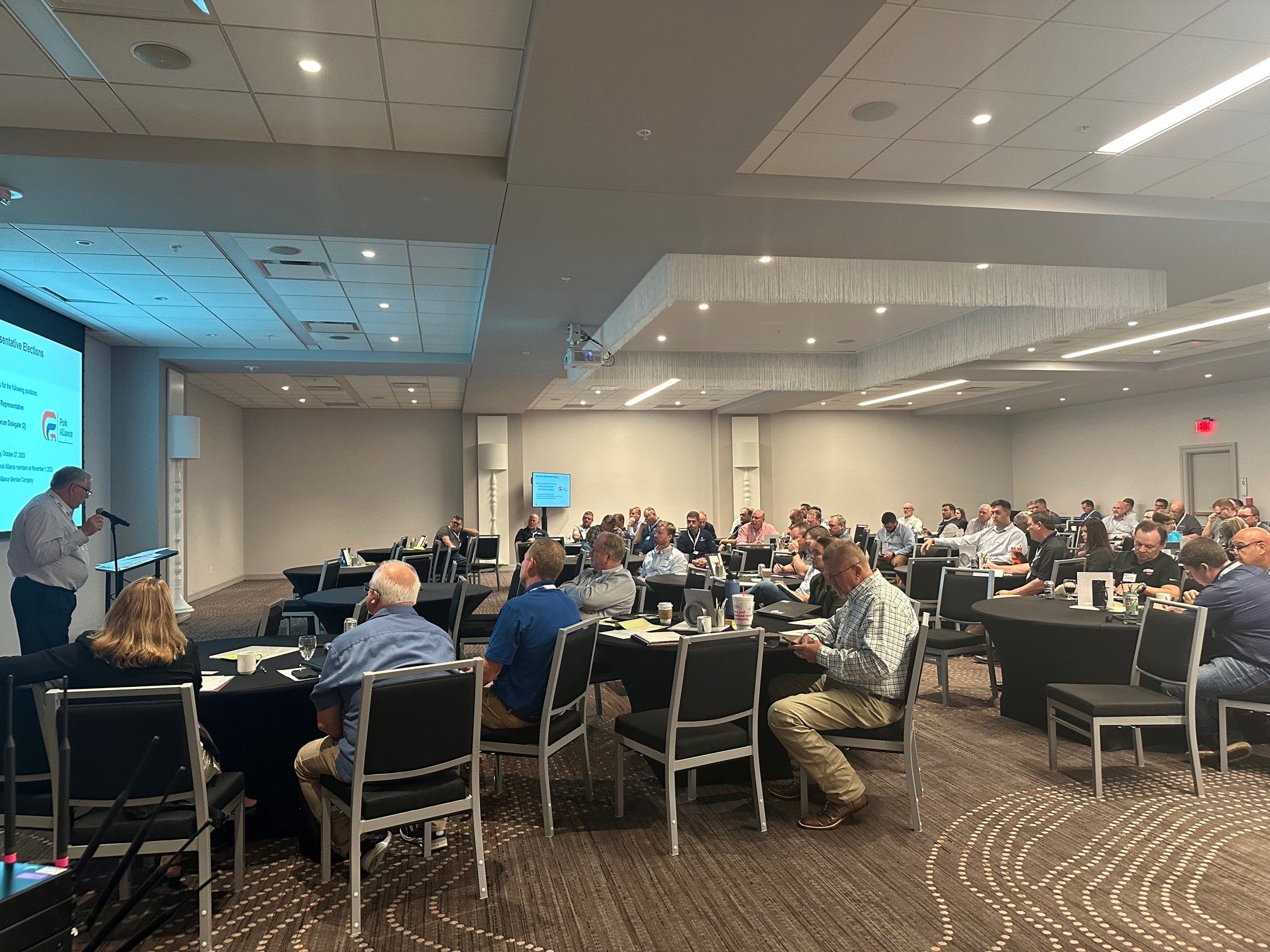
Pork Alliance members attend Fall meeting in Des Moines, Iowa.
Pork Leadership Class Travels to Colombia
What happened: The latest class of the Pork Leadership Institute (PLI), the joint training program of NPPC and the National Pork Board designed to develop future pork industry leaders, this week traveled to Bogotá, Colombia. NPPC Vice President of International Affairs Maria C. Zieba and Manager of Producer Engagement Lucy Russell accompanied the 17 PLI participants on the trip. In addition to insightful presentations, participants were welcomed by representatives to tour the Colombian Senate. This final session in the PLI curriculum rounds out the year-long program, providing these talented individuals with a complete understanding of the industry.
Why it matters: The PLI class traveled to Colombia to learn about the importance of trade to the U.S. pork industry, which last year shipped more than 25% of its total production to foreign destinations, including Colombia. In fact, the South American country was the sixth largest export market for U.S. pork, taking more than $244 million of product in 2022. PLI participants heard presentations from Carlos Ronderos, the former Colombia trade minister, and PorkColombia Vice President Corina Zambrano, who spoke about the country’s pork industry, production, and disease elimination efforts.
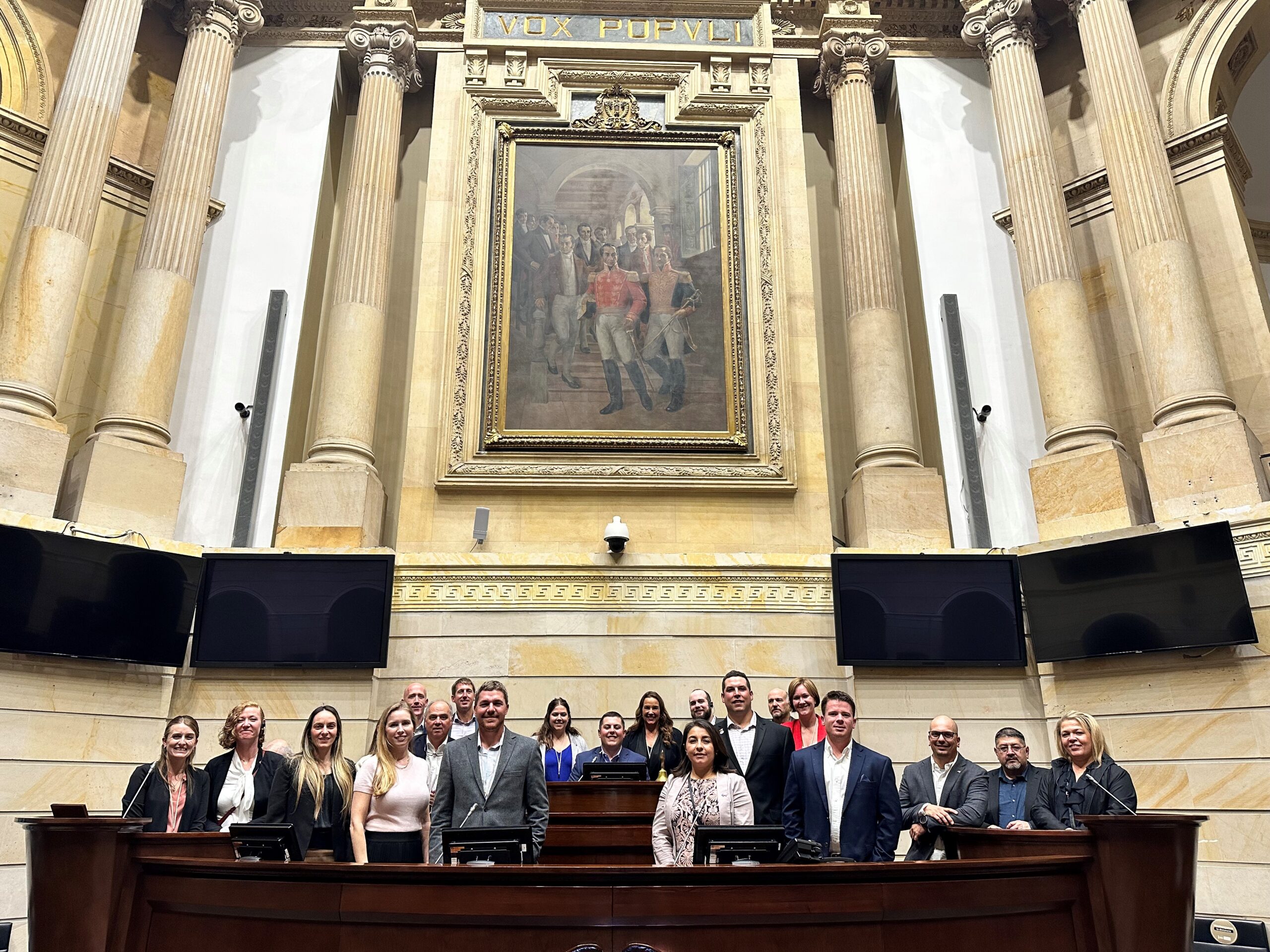
PLI participants tour the Colombian Congress.
Former Colombian Minister of Trade Carlos Ronderos speaks to PLI participants.
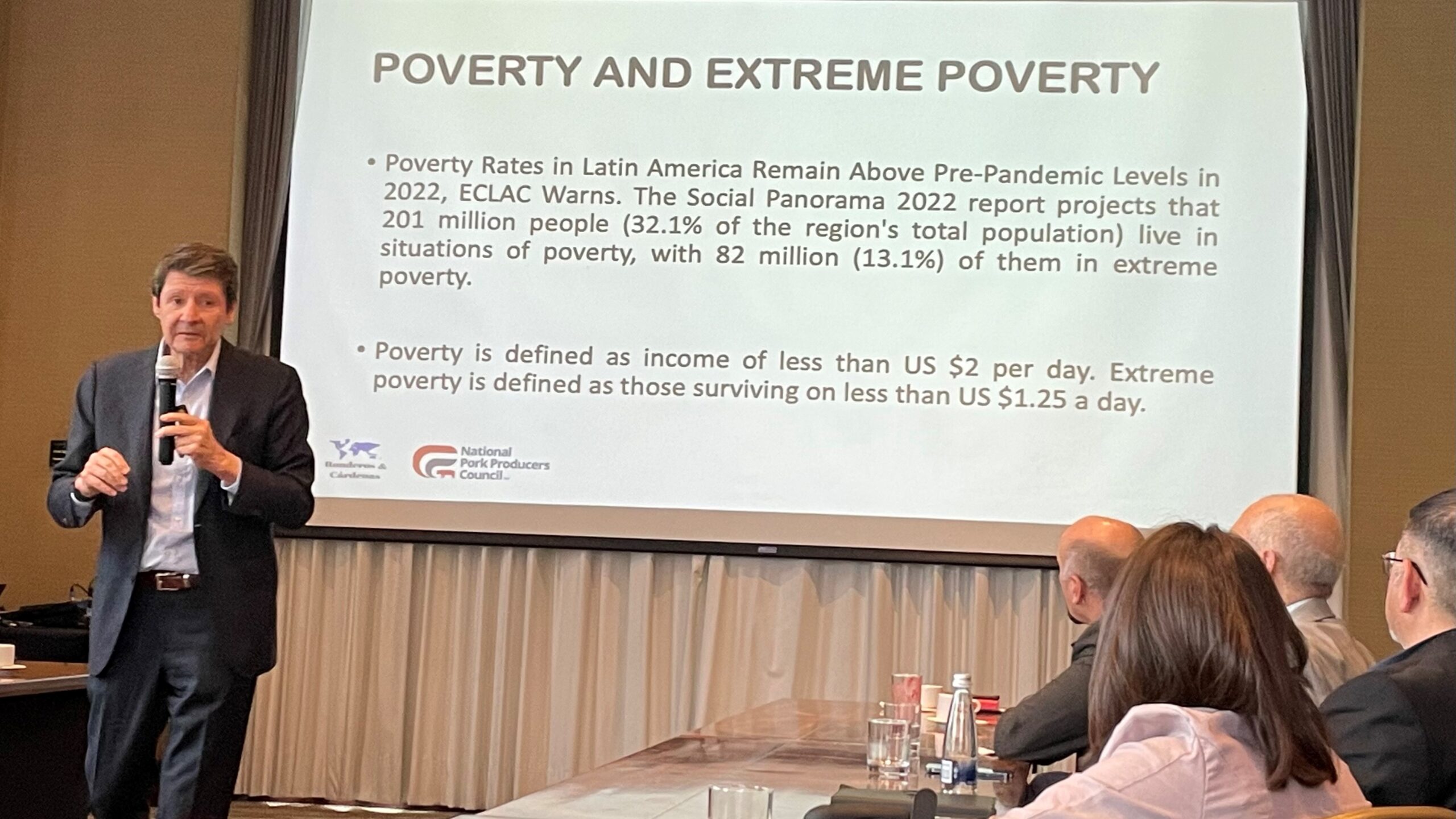
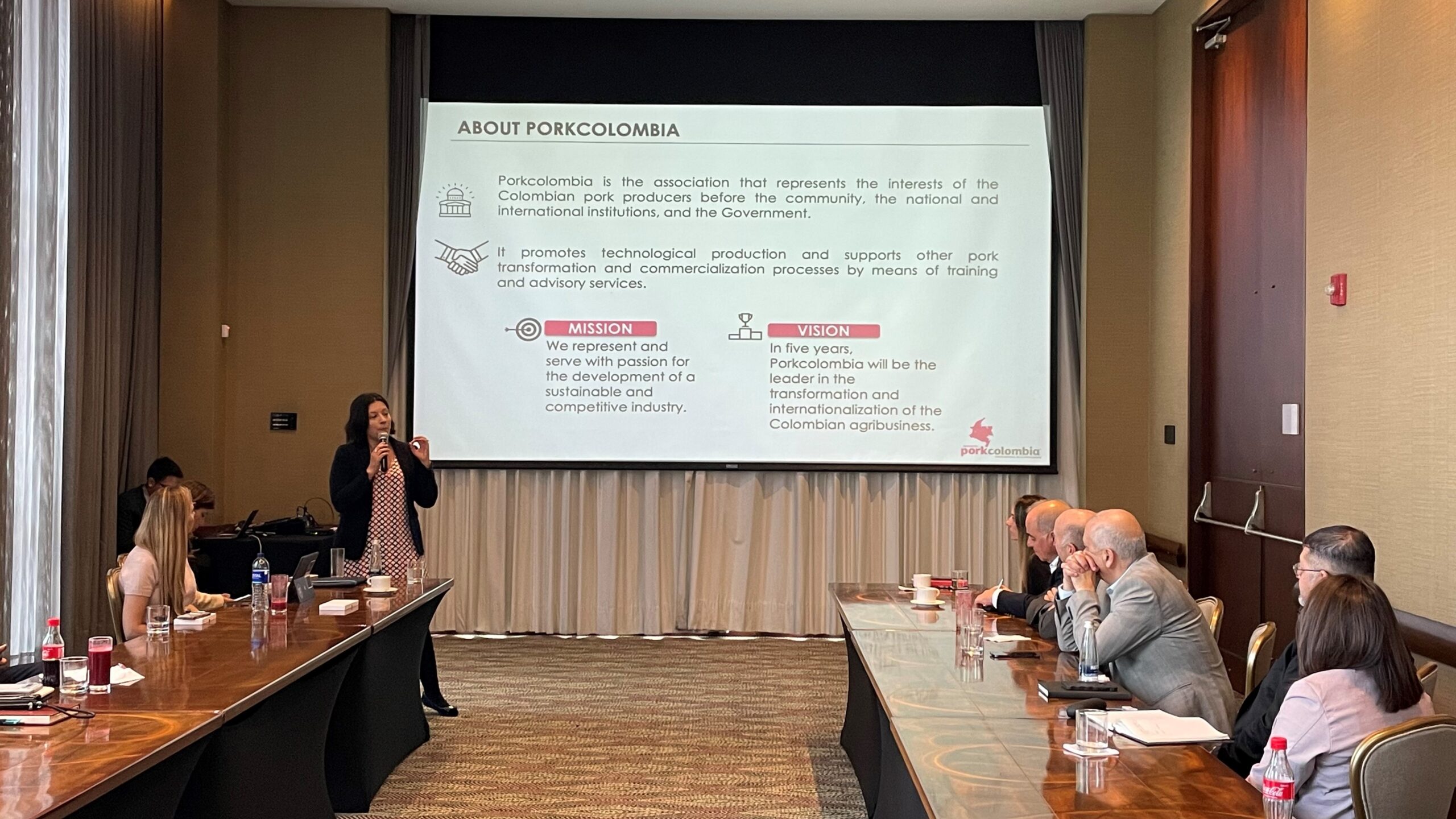
PorkColombia’s Carina Zambrano speaks to PLI participants.
NPPC Comments on USTR’s National Trade Estimate Report
What happened: NPPC this week submitted comments to the Office of the U.S. Trade Representative (USTR) on its 2024 National Trade Estimate (NTE) Report on Foreign Trade Barriers, which details significant barriers to U.S. exports of goods and services, U.S. foreign direct investment, and U.S. electronic commerce in important export markets.
Among the trade obstacles considered are import policies such as tariffs, technical barriers to trade, sanitary and phytosanitary (SPS) measures, government procurement policies, intellectual property protections — or lack thereof — and subsidies.
The report highlights agricultural trade barriers such as burdensome facility registration requirements, SPS regulations, import licensing requirements that are not science-based, and a lack of adherence to international science- and risk-based standards.
Why it matters: Trade barriers limit U.S. agricultural exports, which are vital to America’s farmers, ranchers, and the overall U.S. economy, supporting about 1 million U.S. jobs. For pork producers, pork exports contribute significantly to their bottom line. Last year, producers shipped nearly $7.7 billion of product to foreign destinations, and those exports added the equivalent of more than $61 to the average price producers received for each hog marketed.
NPPC’s take: The NTE Report helps U.S. negotiators in their efforts to reduce or eliminate trade barriers and is a valuable tool for enforcing U.S. trade laws and agreements. In its comments for the most recent report, NPPC listed 21 countries that have varying tariff and/or non-tariff barriers limiting U.S. pork exports. Among them are Australia, where the U.S. does not have full market access because of sanitary and phytosanitary barriers related to Porcine Reproductive Respiratory Syndrome (PRRS); Ecuador, where U.S. pork faces onerous import licensing schemes that block access, South Africa, which prohibits pork offal and requires trichinae-related freezing of pork; and Taiwan, with country-of-origin labeling requirements and new maximum residue limits for animal health products used in hogs.
Farm, Business Groups Ask EPA to Drop Herbicide Plan
What happened: NPPC joined more than 200 agricultural and business organizations on comments submitted this week to the U.S. Environmental Protection Agency (EPA) that were highly critical of EPA’s proposed “Draft Herbicide Strategy Framework.” The proposal, an effort to protect threatened and endangered species, would severely curtail farmers’ use of herbicides to control crop-killing weeds, according to the groups.
EPA’s plan to protect more than 900 species listed under the Endangered Species Act (ESA) would require herbicide users to implement measures to mitigate the impacts of herbicides and pesticides on wildlife habitat by reducing exposure from spray drift and/or runoff. In November, EPA is expected to issue a draft proposal on rodenticides, assessing their effects on all ESA species.
The herbicides, pesticides and rodenticides plans, as well as ones on fungicides and insecticides that still are being formulated, were prompted by multiple lawsuits filed by environmental activists against EPA over the past decade for its failure to meet statutory obligations under the ESA.
Why it matters: Farmers depend on herbicides and pesticides to combat weeds, which, if not managed properly, can cause catastrophic yield losses and even total crop failures. In addition to herbicides and pesticides, livestock farmers use rodenticides to control disease-carrying vermin in their operations.
NPPC’s take: In their comments to EPA, NPPC and 225 agricultural and business organizations urged the agency to scrap its proposed framework, calling it a “complex, unworkable proposal” that would impose “significant new, costly regulatory burdens for millions of U.S. agricultural producers.” One group, the American Soybean Association, which also filed separate comments, said the EPA proposal would make it “difficult for individual producers and applicators to even determine if lands are under regulation,” making it hard to fight weeds.
Deadline TODAY: NPPC Calls For Feedback on Strengthening Swine Traceability System
What happened: NPPC is asking pork producers to weigh in on a plan to strengthen the pork industry’s swine traceability system to better track pig movements, which would be vital in case of a foreign animal disease (FAD) outbreak in the U.S.
Updates to the existing system include the addition of breeding stock, cull animals, and show pigs, whose movements currently are difficult to track, giving each a unique ID number. A draft plan also calls for registering premises for all producers, cull and breeding operations, and show pig farms and reporting movements for all pigs to a centralized database that is available to animal health officials.
Why it matters: As seen in previous FAD outbreaks, foreign export markets would close to U.S. pork immediately in response. Strengthening live-swine traceability will better assure animal health officials have access to comprehensive movement data, show trading partners the United States knows where disease-free animals are, and allow U.S. pork exports, which last year were nearly $7.7 billion, to resume.
Take action: Pork producers, veterinarians, cull swine and breeding operators, and show pig enthusiasts should comment on draft standards today, Oct. 27. Their input will be used to update the standards, which will be presented for approval to pork industry delegates at the 2024 National Pork Industry Forum in March.
NPPC’s Adams Participates in Farm Bill Panel
What happened: NPPC Senior Director of Congressional Relations Chase Adams on Tuesday participated in a 2023 Farm Bill panel at an Iowa Chamber Alliance (ICA) meeting in Washington, DC. The ICA held its legislative fly-in this week.
Adams discussed NPPC’s 2023 Farm Bill priorities, including securing adequate funding for U.S. Department of Agriculture programs that safeguard the nation’s food supply against threats posed by foreign animal diseases (FADs), as well as key programs that expand foreign markets for U.S. agricultural products. Adams also addressed the issues created by California’s Proposition 12.
Why it matters: The five-year farm bill sets farm, conservation, forestry, and nutrition policy and authorizes various agricultural programs, including ones related to research and animal disease preparedness. The 2018 Farm Bill expired Sept. 30, 2023 — the end of the fiscal year — but programs continue at least through the end of the year.
NPPC’s take: NPPC is urging congressional lawmakers to include in the 2023 Farm Bill provisions to prevent and prepare for FADs, fund the Market Access and Foreign Market Development export promotion programs, preempt California’s Proposition 12, and provide an adequate safety net for farmers. It also supports inclusion in the bill of funding for agricultural research, particularly on emerging livestock diseases such as African swine fever and foot and mouth disease, and for USDA’s Agricultural Quarantine and Inspection program, including detector dogs used by U.S. Customs and Border Protection at U.S. ports of entry to help interdict agricultural contraband.
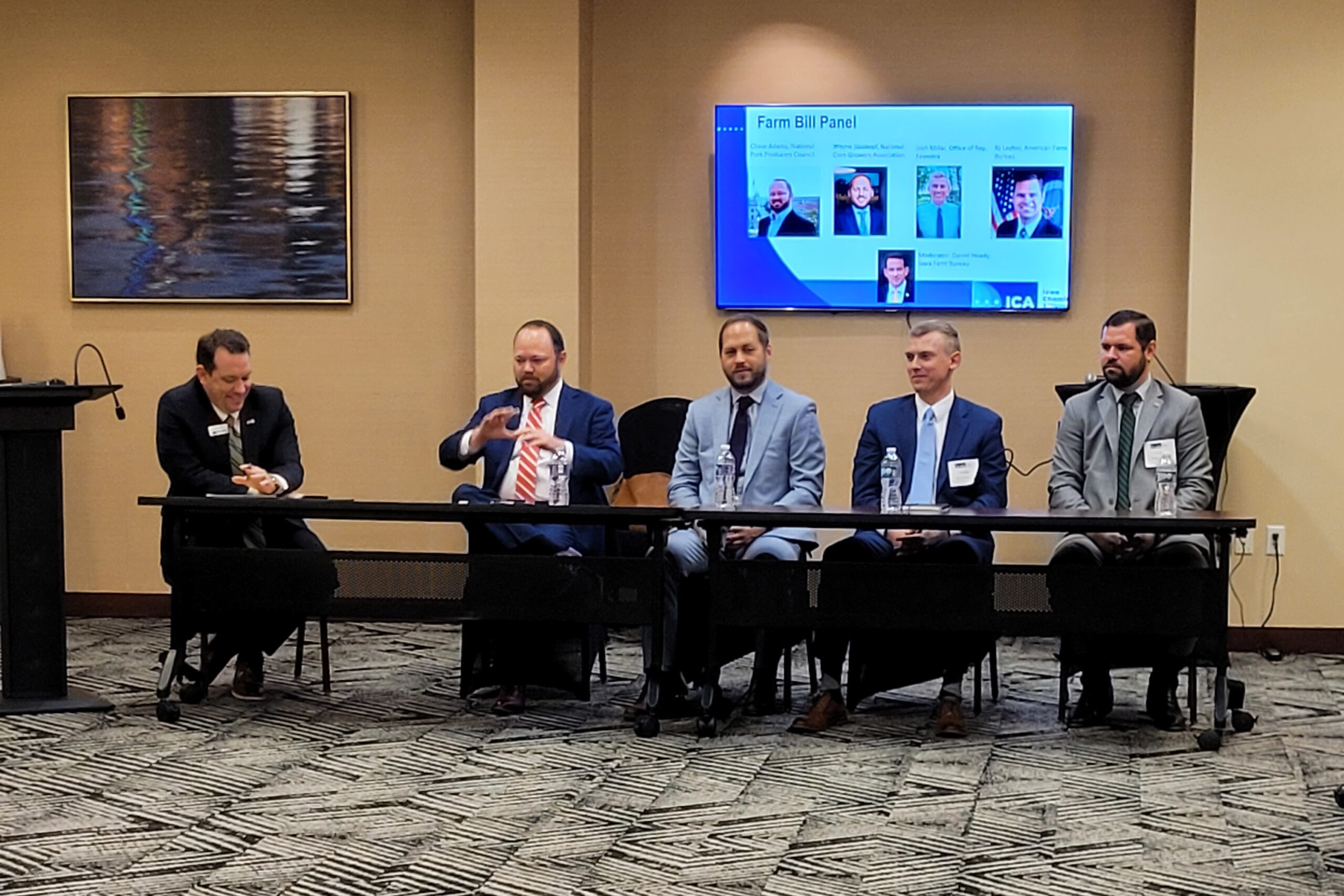
NPPC Senior Director of Congressional Relations Chase Adams (second from left) talks about the Farm Bill to the Iowa Chamber Alliance in Washington, DC.
Formica Participates in Restaurant Legal Summit
What happened: NPPC Chief Legal Strategist Michael Formica Thursday participated in a panel discussion session at the National Restaurant Association’s (NRA) Restaurant Law Center’s 7th annual summit. The panel covered topics such as due diligence and the potential legal challenges and pitfalls from marketing claims over product characteristics, as well as the steps that can be taken to manage those risks.
Why it matters: From animal welfare to sustainability and veterinary characteristics, brand managers often seek to distinguish their products in the consumer marketplace through marketing claims. These claims, such as natural, sustainable, and humanely raised are often made without full consideration of their implications throughout the entire supply chain. This brings increased risk of liability to brands while putting significant pressure and stress on supply chains that may not be fully considered prior to making the claim, a situation that is greatly exacerbated when those claims come in response to pressures from activist groups.
In a discussion before the summit and the legal officers of the nation’s leading restaurant brands, Formica and other panelists discussed marketing pressure to distinguish brands, increasing levels of regulatory and activist pressure to make long term supply chain commitments, and the hurdles that can exist — including practical, technological, and financial — to the supply chain’s ability to procure sufficient supplies for those niche products. The discussion included a review of the increasing frequency in which those claims, in conjunction with activist groups, are being tested in court and also explored the importance of having adequate systems in place — through audits, certifications, or other documentation — to back up the claims. Finally, Formica stressed the importance of legal staff working within companies to ensure that any claims are feasible and are made with a full understanding of the supply chain’s ability to meet the claim.
Proposition 12, and the implications of the Supreme Court’s decision earlier this year, arose on multiple panels throughout the summit. In response, Formica highlighted challenges the pork industry faces from ballot measures, such as California’s Proposition 12 and Massachusetts’ Question 3, especially as the industry struggles through the current financial crisis. Formica also spoke about the success of the partnership between NRA, state restaurant associations, and NPPC and other coalition partners in fighting these measures and successfully using the courts to help shape policy debates.
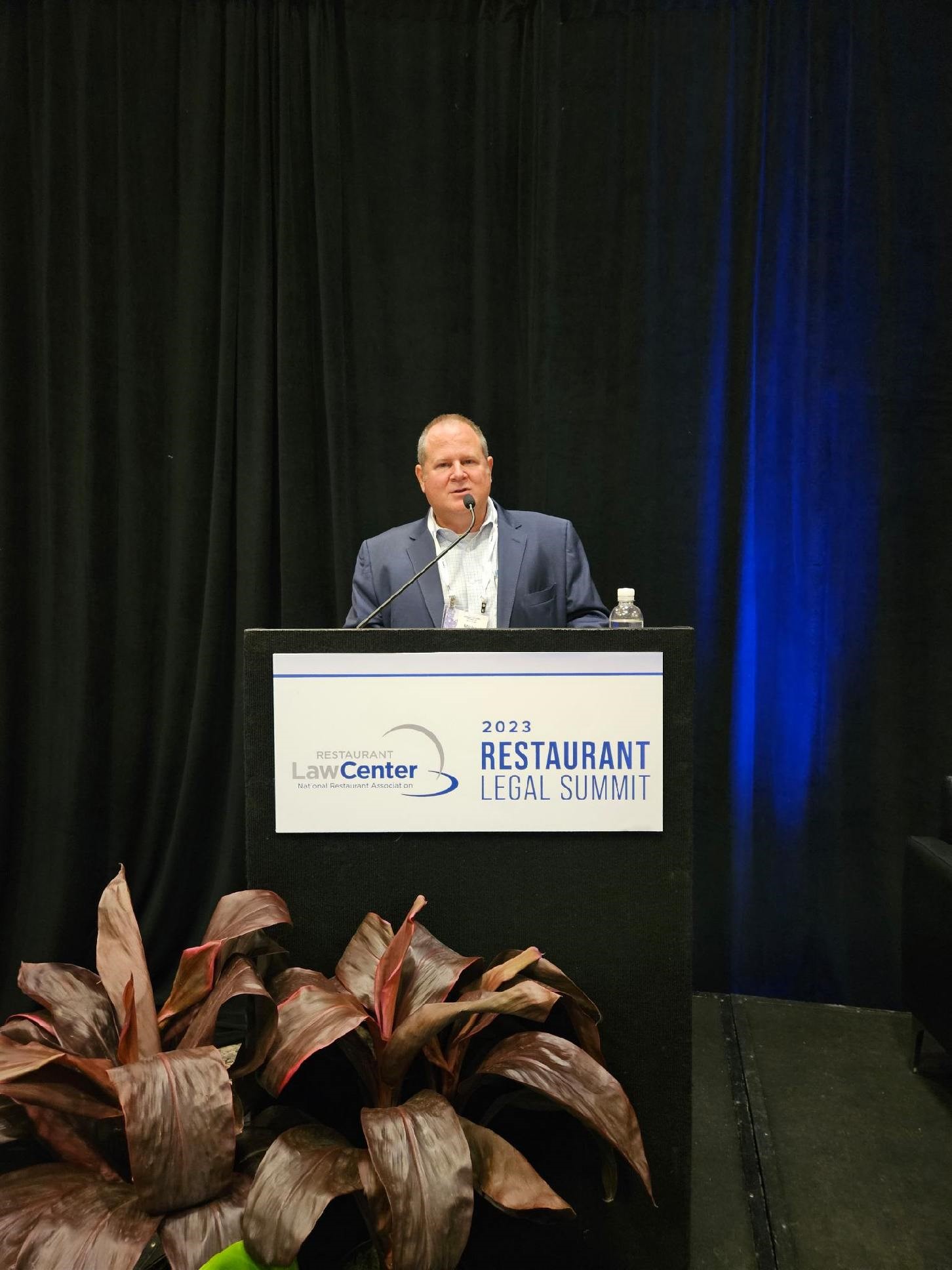
Formica speaks to NRA summit participants.
House Elects Johnson as New Speaker
What happened: After three weeks and three false starts, the U.S. House of Representatives Wednesday elected a new speaker. Rep. Mike Johnson (R-LA) takes the gavel from Kevin McCarthy (R-CA), who was forced from the speakership on an Oct. 3 motion to vacate the chair orchestrated by conservative House Republicans and backed by all Democrats. Subsequently, House Majority Leader Steve Scalise (R-LA), Judiciary Chairman Jim Jordan (R-OH), and Majority Whip Tom Emmer (R-MN) were nominated for the post but withdrew and/or failed to win a majority vote.
Johnson said as Speaker one of his priorities is to complete the annual appropriations process by a Nov. 17 deadline. Funding for federal programs expired Sept. 30 — the end of the 2023 fiscal year — but was extended 45 days through a continuing resolution. House lawmakers still must approve fiscal 2024 funding for eight of the 12 appropriations bills; the Senate was slated to begin voting this week on its first three appropriations measures.
Johnson, who was elected on a 220-209 party-line vote, also proposed forming a working group to craft a new Farm Bill rather than sending the legislation that recently was defeated on the House floor back to the Agriculture Committee.
Why it matters: The Speaker of the House, a role established by the U.S. Constitution, oversees the lower chamber of Congress. Traditionally and historically, the Speaker has been a member of the majority party — although that is not a constitutional requirement — so, in addition to leading the House, she or he has been the leader of the majority party in that body.
The Speaker sets the House’s legislative agenda, controls committee assignments, sets the vote and work calendar, and is responsible for keeping her or his party members unified on legislation and initiatives.
In a letter to his colleagues, Johnson said he aims to pass the House’s farm bill version in December and “begin negotiations as soon as possible.” Also, 62 House Republican members sent a letter to Johnson urging passage of the 2023 Farm Bill. NPPC is advocating for a farm bill that includes robust funding for animal disease preparedness and addresses the challenges presented by California’s Proposition 12.